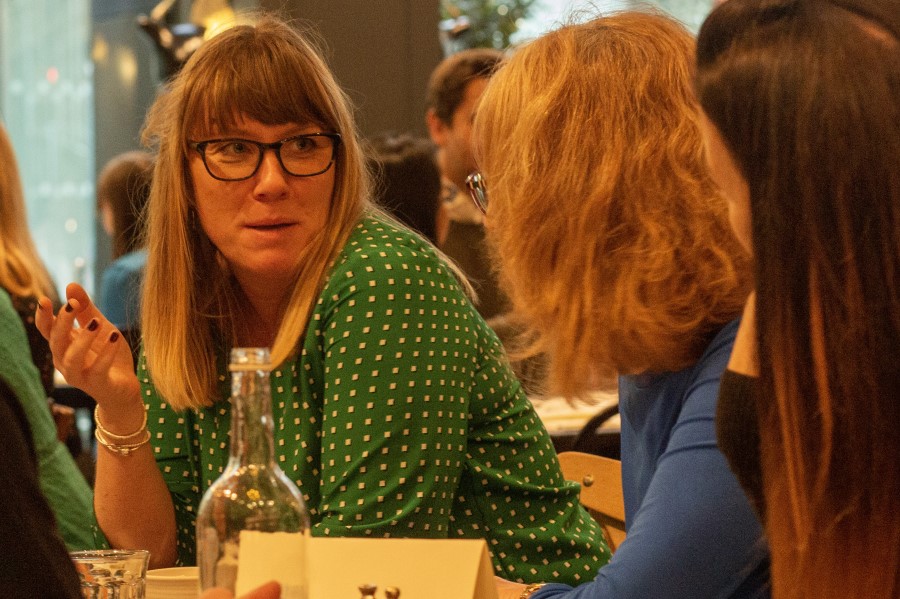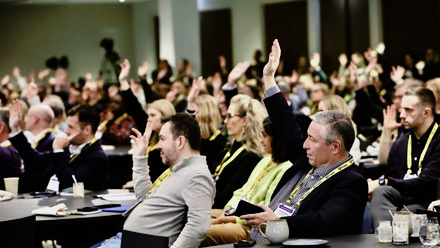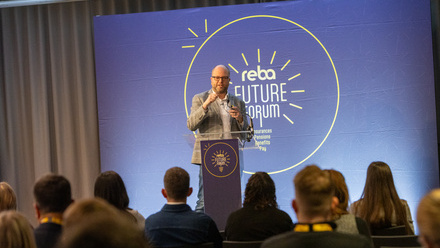Q&A: Dani Brackpool of Sainsbury’s on the importance of women’s health in the workplace
 Dani Brackpool pictured on the left.
Dani Brackpool pictured on the left.
Q. Why is considering women’s health important for your organisation?
A. Our aim is to be the most inclusive retailer where every single one of our colleagues can fulfil their potential, therefore the health for every colleague is important to us. In addition, what could be considered as gender-specific health needs, can have an impact on colleagues of any gender. I.e. menopause actually affects our male colleagues too, as personally they could be partners or children, and professionally are also working alongside our female colleagues.
There are elements of women’s health that are still taboo, so we are working to find ways to open up the conversation. On World Menopause Day we took the opportunity to shine a spotlight on the topic. We created a fact sheet and used internal colleague communication tools for people to share stories and provide support, along with a session where colleagues could message in their questions to a member of our leadership team. This also works the opposite way round, as quite often it is our female colleagues who take notice of male health campaigns and are the ones who encourage their male colleagues, partners and sons etc. to take action.
Q. What are some of the specific ways that issues such as the menopause are affecting your workforce?
A. Our workforce gender split is roughly 50/50 and we have about 30,000 colleagues who are women of menopausal age. Therefore, it is key that we think about things like uniform, shift work, breaks and colleagues working in different environments, such as depots, call centres, stores and offices. All of these workplaces can provide challenges for someone with menopausal symptoms, so we updated our e-learning workplace adjustment module to raise awareness. A flexible working adjustment like varying a start time to avoid travel at peak times on public transport can make a world of difference to someone who is suffering from hot flushes or anxiety.
Q. To what extent do you see helping women as offering medical solutions (e.g. access to HRT) versus cultural change (e.g. shared parental leave, flexible working)?
A. For us it’s about cultural change; removing taboos, normalising the conversations, recognising that not everyone is the same and helping each individual to access the support they personally need.
Q. How do you see the importance of women’s wellbeing evolving in the future?
A. More women than ever before are in the workforce, more are working full-time and for longer over the course of their lifetime. As such, supporting women’s wellbeing will be something that will need to continue to evolve in order to meet their needs, whether that’s support with fertility issues, breastfeeding, caring responsibilities or menopause.
We want to increase female representation at senior levels so women’s wellbeing is just one of the things we need to take seriously. We have to make sure opportunities are available, accessible and feasible for anybody.
Brackpool attended REBA’s Women’s Health in the Workplace breakfast in association with AXA PPP Healthcare. It brought together academics, employers and organisations from the charity sector to discuss the importance of recognising and supporting female employees’ health.
A full review of the event and other related materials can be found in the Women's health: the last workplace taboo article.
Supplied by REBA Associate Member, AXA Health
At AXA Health, we've been a trusted provider of quality healthcare for over 75 years.







